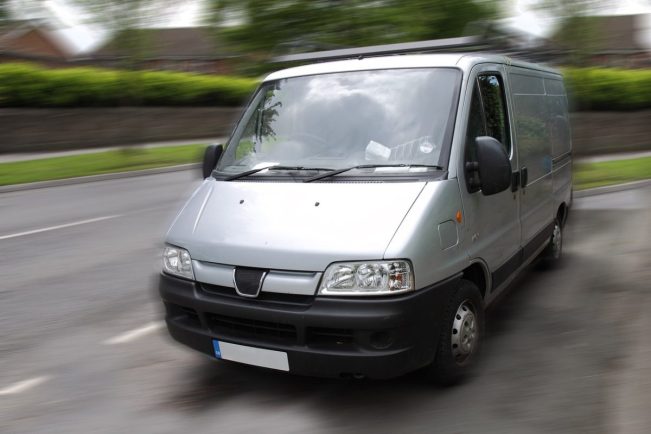As a van driver, finding affordable insurance can be a daunting task. With premiums often being higher than those for regular cars, it’s essential to explore every avenue possible to reduce your insurance costs. In 2023, the average annual cost of van insurance in the UK is approximately £1,500, according to recent industry reports. However, by implementing certain strategies and being proactive in your approach, you could potentially save hundreds of pounds on your van insurance premiums. In this article, we’ll delve into 10 proven methods to help you secure cheaper van insurance without compromising on the level of coverage you need.
1. Compare quotes from multiple providers
One of the most effective ways to secure cheaper business van insurance is to compare quotes from a wide range of insurers. According to recent studies, drivers who compare quotes from at least five different providers can save up to £200 on their annual premiums. Don’t simply auto-renew your existing policy without checking other options first. Utilise comparison websites which can provide you with quotes from over 60 UK-based van insurance specialists in a matter of minutes. By taking the time to shop around, you could potentially save up to £590 on your van insurance premiums.
2. Choose the right level of coverage
While it might be tempting to opt for the most basic level of coverage to keep costs down, this isn’t always the most cost-effective approach. Third-party only policies, which provide the minimum level of cover required by law, are often assumed to be the cheapest option. However, statistics show that comprehensive policies can sometimes be more affordable on average. This is because many high-risk drivers tend to choose third-party only policies, driving up the overall cost of these policies. By considering the different levels of coverage available and assessing your specific needs, you can find the most economical option for your circumstances.
3. Pay annually instead of monthly
If your budget allows, paying your van insurance premiums in one lump sum can result in significant savings compared to monthly instalments. Insurance providers often charge interest rates ranging from 10% to 20% for monthly payment plans, which can add a substantial amount to your overall costs. By paying annually, you can avoid these additional charges and potentially save up to £100 or more on your van insurance. If you’re unable to
pay the full amount upfront, consider setting aside money each month in a separate account to cover the annual cost when it’s due.
4. Increase your voluntary excess
Your insurance excess is the amount you agree to pay towards any claim you make on your policy. By increasing your voluntary excess, which is the amount you choose to pay on top of the compulsory excess set by your insurer, you can lower your premium costs. Research shows that increasing your voluntary excess from £200 to £500 could result in savings of up to 10% on your annual premiums. However, it’s crucial to ensure that you can afford the higher excess amount in the event of a claim, as you’ll need to pay this sum before your insurer covers the remaining costs.
5. Boost your van’s security
Investing in additional security measures for your van can lead to significant discounts on your insurance premiums. Industry figures suggest that installing an approved alarm system could reduce your costs by up to 5%, while adding an immobiliser could result in savings of up to 10%. Other security devices such as GPS trackers and wheel locks can also help to lower your premiums. Before purchasing any security equipment, check with your insurer to see which devices they recognise and what level of discount they offer for each.
6. Maintain a clean driving record
One of the most significant factors that influence your van insurance premiums is your claims history. Building up a no-claims bonus (NCB) is a proven way to reduce your insurance costs over time. For every year you remain claim-free, you’ll earn a discount on your premiums. The longer you go without making a claim, the higher the discount – a five-year NCB could save you up to 65% with some insurers. Conversely, making a claim can cause your premiums to skyrocket, with some drivers seeing increases of up to 50% after a single claim.
7. Limit your mileage
The number of miles you drive each year has a direct impact on your insurance costs. The more time you spend on the road, the higher the likelihood of being involved in an accident – and this increased risk is reflected in your premiums. By accurately estimating your annual mileage and opting for a limited mileage policy, you could save a considerable amount on your van insurance. For example, if you drive fewer than 7,500 miles per year, you could
save up to 10% compared to a standard policy. Some insurers offer even greater discounts for very low mileage, such as 5,000 or even 1,500 miles annually.
8. Park your van somewhere safe overnight
Where you park your van when it’s not in use can also affect your insurance premiums. Vehicles that are kept in a secure location, such as a locked garage or private driveway, are generally cheaper to insure than those parked on the street. This is because they are considered to be at a lower risk of theft, vandalism, and accidental damage. Statistics show that vans parked in a garage overnight can be up to 20% cheaper to insure than those parked on the street. If off-street parking isn’t an option, consider installing additional security devices to mitigate the risk and potentially lower your premiums.
9. Consider telematics or black box insurance
Telematics insurance, also known as black box insurance, is a type of policy that bases your premiums on your actual driving behaviour. A small device installed in your van monitors various aspects of your driving, such as speed, braking, acceleration, and the time of day you drive. By demonstrating safe and responsible driving habits, you could be rewarded with lower insurance premiums. Studies have shown that drivers who use telematics insurance can save up to 25% on their annual costs, with younger and inexperienced drivers often seeing the most significant benefits.
10. Join a trade organisation
If you use your van for business purposes, joining a recognised trade organisation could make you eligible for discounted insurance rates. Many insurers offer preferential rates to members of professional bodies, as they are seen as being more responsible and less likely to make claims. For example, if you’re a plumber, joining the Chartered Institute of Plumbing and Heating Engineering (CIPHE) could result in savings of up to 10% cheaper for commercial van insurance. Similarly, electricians who are members of the National Inspection Council for Electrical Installation Contracting (NICEIC) may be able to secure discounts of up to 15%.
How can I find the cheapest van insurance?
To find the cheapest van insurance, you should:
- Compare quotes from at least five different providers, using comparison websites.
- Choose the appropriate level of coverage for your needs, considering factors such as your driving history, the value of your van, and your budget.
- Increase your voluntary excess to lower your premium costs, ensuring that you can afford the higher amount in the event of a claim.
- Take steps to reduce your perceived risk, such as installing additional security devices, maintaining a clean driving record, and limiting your annual mileage.
- Consider alternative policy types, such as telematics or black box insurance, which base your premiums on your actual driving behaviour.
By following these steps and being proactive in your approach, you can potentially save hundreds of pounds on your annual van insurance costs.
Is it cheaper to pay van insurance annually or monthly?
In the vast majority of cases, paying your van insurance premiums annually will be cheaper than opting for monthly instalments. This is because insurers typically charge interest rates of between 10% and 20% for monthly payment plans, which can add a significant amount to your overall costs over the course of the year.
For example, if your annual van insurance premium is £1,500 and you choose to pay in monthly instalments with an interest rate of 15%, you would end up paying an additional £225 over the year, bringing your total cost to £1,725. In contrast, paying the full £1,500 upfront would save you this extra expense.
If you can afford to pay your premiums in one lump sum, it’s almost always the most cost-effective option. However, if you’re unable to do so, shopping around for the most competitive monthly rates and setting aside money each month to cover the cost can help to make van insurance more manageable.
How do no-claims discounts work for van insurance?
A no-claims discount (NCD), also known as a no-claims bonus, is a reward offered by insurers to policyholders who go a specified period without making a claim on their van insurance. The longer you remain claim-free, the higher the discount you’ll receive on your premiums.
The exact level of discount varies between insurers, but a typical NCD scale might look like this:
- 1 year: 10% discount
- 2 years: 20% discount
- 3 years: 30% discount
- 4 years: 40% discount
- 5 years or more: 60-65% discount
For example, if your annual van insurance premium is £1,500 and you have a 5-year NCD of 60%, you would only pay £600 for your policy, saving you £900.
However, if you do need to make a claim, your NCD will usually be reduced by two years. So, if you have a 5-year NCD and make a claim, it would be reduced to a 3-year NCD when you renew your policy.
Some insurers offer NCD protection as an optional extra, which allows you to make a specified number of claims (usually one or two) without affecting your NCD. However, this protection typically comes at an additional cost and may not be available if you have a particularly high NCD.
It’s important to note that your NCD is not transferable between insurers, so if you switch providers, you’ll need to provide proof of your claims-free years to obtain the equivalent discount with your new insurer.
What is black box or telematics van insurance?
Black box or telematics van insurance is a type of policy that uses technology to monitor your driving behaviour and adjust your premiums accordingly. A small device, known as a black box, is installed in your van and tracks various aspects of your driving, such as:
- Speed
- Braking
- Acceleration
- Cornering
- Time of day
- Mileage
The data collected by the black box is transmitted to your insurer, who uses it to build a personalised risk profile based on your actual driving habits. If you consistently demonstrate safe and responsible driving, you could be rewarded with lower insurance premiums.
Telematics insurance can be particularly beneficial for young or inexperienced drivers, who often face higher premiums due to their increased risk profile. By proving that they are safe and competent drivers, they can potentially save a significant amount on their van insurance costs.
Research has shown that drivers who use telematics insurance can save up to 25% on their annual premiums, with an average saving of £200. In addition to the financial benefits, black box policies can also encourage safer driving habits and provide useful feedback to help you improve your skills behind the wheel.
However, it’s important to be aware that telematics insurance works both ways – if you consistently demonstrate poor or risky driving behaviours, your premiums could increase as a result. Some insurers may also impose restrictions on your policy, such as curfews or mileage limits, which can be inconvenient for some drivers.
Do I need special insurance for a modified van?
If you’ve made any modifications to your van, whether for performance, aesthetic, or practical reasons, you’ll need to inform your insurer and obtain appropriate coverage. Failing to disclose modifications can invalidate your policy, leaving you without coverage in the event of a claim.
The impact of modifications on your van insurance premiums will depend on the type and extent of the changes made. Some common modifications that can affect your insurance include:
- Engine upgrades or remapping
- Suspension changes
- Wheel or tyre upgrades
- Bodywork modifications (e.g., spoilers, body kits)
- Audio or entertainment system enhancements
- Signage or livery
In general, modifications that increase your van’s performance or value are likely to result in higher insurance premiums, as they are seen as increasing the risk of accidents or theft. For example, engine upgrades that boost your van’s power output could lead to premium increases of up to 20%.
However, some modifications can actually help to reduce your insurance costs. Security-related modifications, such as the installation of approved alarm systems, immobilisers, or tracking devices, can lead to discounts of up to 10% on your premiums.
Before making any modifications to your van, it’s essential to check with your insurer to see how the changes will affect your coverage and costs. Some insurers may not be willing to cover certain types of modifications, while others may require you to take out a specialist modified van insurance policy.
If you’re considering purchasing a modified van, be sure to obtain insurance quotes before committing to the purchase, as the increased premiums could significantly impact the overall cost of ownership.
Securing cheap van insurance requires a combination of proactive research, smart decision-making, and a willingness to explore all available options. By comparing quotes from multiple providers, choosing the appropriate level of coverage, increasing your excess, and taking steps to reduce your risk profile, you can potentially save hundreds of pounds on your annual premiums.
Whether you opt for a standard policy or explore alternative options like telematics insurance, the key is to find a balance between cost and coverage that meets your specific needs. By following the tips and advice outlined in this article, you’ll be well-equipped to navigate the complex world of van insurance and secure the best possible deal for your circumstances.










